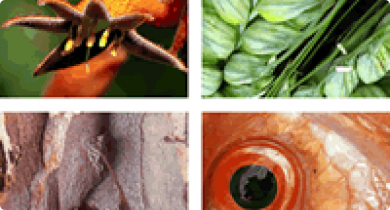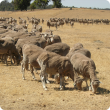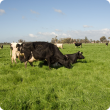Biosecurity & quarantine
The Department of Agriculture and Food, Western Australia (DAFWA) works with primary industries to safeguard our agricultural resources from biological threats and to maintain our export opportunities.
The State’s reputation is underpinned by a comprehensive biosecurity and quarantine system, developed and operated by DAFWA.
DAFWA is involved with:
- creation of surveillance and diagnostic programs
- animal and plant risk assessments
- importing and exporting requirements
- creating mechanisms to respond to incursions
- livestock movement and identification
- development and maintenance of biosecurity and quarantine legislation.
To find out more about what we do to protect agricultural production and export opportunities within the State please search our website.
Filter by search
Filter by topic
- (-) Remove Livestock management filter Livestock management
- Livestock & animals (50) Apply Livestock & animals filter
- Biosecurity (50) Apply Biosecurity filter
- (-) Remove Livestock biosecurity filter Livestock biosecurity
- Pests, weeds & diseases (38) Apply Pests, weeds & diseases filter
- Livestock health & diseases (33) Apply Livestock health & diseases filter
- Diseases (33) Apply Diseases filter
- Livestock disease surveillance (29) Apply Livestock disease surveillance filter
- Livestock species (21) Apply Livestock species filter
- Management & reproduction (17) Apply Management & reproduction filter
- Sheep (12) Apply Sheep filter
- Feeding & nutrition (10) Apply Feeding & nutrition filter
- Emergency animal disease preparedness (9) Apply Emergency animal disease preparedness filter
- Stockfeed (7) Apply Stockfeed filter
- Livestock movement & identification (7) Apply Livestock movement & identification filter
- Control methods (6) Apply Control methods filter
- Chemicals (6) Apply Chemicals filter
- Beef cattle (5) Apply Beef cattle filter
- Dairy cattle (4) Apply Dairy cattle filter
- Veterinary chemicals (4) Apply Veterinary chemicals filter
- Poultry & birds (3) Apply Poultry & birds filter
- Wildlife biosecurity (3) Apply Wildlife biosecurity filter
- Goats (3) Apply Goats filter
- Emergency response (3) Apply Emergency response filter
- Food, export & investment (3) Apply Food, export & investment filter
- Climate, land & water (3) Apply Climate, land & water filter
- Residues in livestock (2) Apply Residues in livestock filter
- Preventing residues (2) Apply Preventing residues filter
- Pigs (2) Apply Pigs filter
- Horses (2) Apply Horses filter
- Pest mammals (1) Apply Pest mammals filter
- Livestock research & development (1) Apply Livestock research & development filter
- Pest animals (1) Apply Pest animals filter
- Water management (1) Apply Water management filter
- Land use planning (1) Apply Land use planning filter
- Water (1) Apply Water filter
- Pests (1) Apply Pests filter
- Fire (1) Apply Fire filter
- Animal welfare (1) Apply Animal welfare filter
- Agribusiness Food & Trade (1) Apply Agribusiness Food & Trade filter
- Climate & weather (1) Apply Climate & weather filter
- Invasive species (1) Apply Invasive species filter
- Investment attraction (1) Apply Investment attraction filter
- Land use (1) Apply Land use filter





